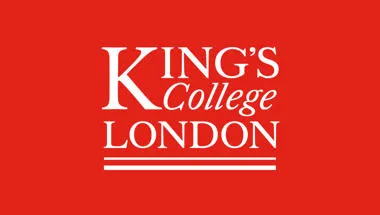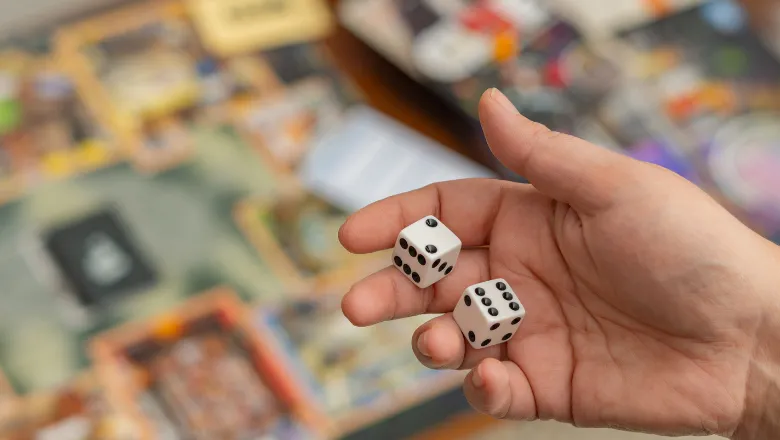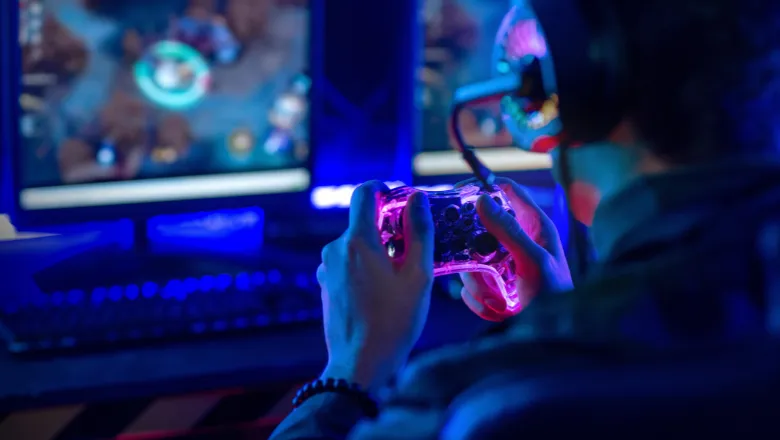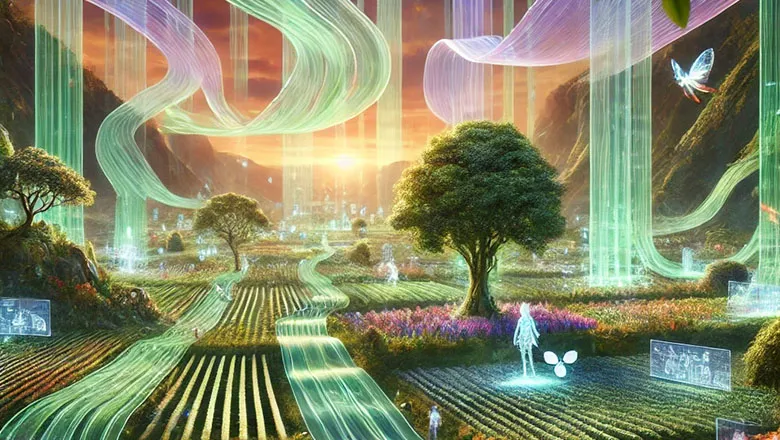
Dr Rob Gallagher
Lecturer in Digital Media Industries
- Programme co-director, Digital Futures MA
Pronouns
he/him
Biography
Rob joined CMCI in July 2023. Prior to taking up his current post he had worked at Royal Holloway, the University of East Anglia, Concordia University, and Manchester Metropolitan University, where he held a position as a lecturer in Film and Media. He has spent much of his academic career working as part of multidisciplinary research teams.
As a postdoctoral fellow at Concordia’s Technoculture, Art and Games lab he led a team conducting an SSHRC-funded study of videogame modding cultures. Between 2014 and 2019 he was part of Ego-Media, an ERC-funded project focused on emerging forms of digital self-presentation, based at King's.
More recently he held a post as senior researcher on the AHRC-funded project Political Ideology, Rhetoric and Aesthetics in the Twenty-First Century: The Case of the 'Alt-Right'.
Research interests and PhD supervision
- Digital games and gaming cultures
- Networked subcultures
- Theories of identity, embodiment and subjectivity
- Digital life-writing and auto/biography
- Online genres, aesthetics and affects
Rob’s research explores the expressive affordances of popular digital forms and genres, with a particular focus on videogames. Much of his recent work has concentrated on art games and autobiographical games, and on the positioning of indie, DIY and avant-garde game creators relative to the commercial games industry. Other research interests include the role of the voice in digital media and the terms on which aesthetics and subcultures develop online, with case studies ranging from grime music and ASMR videos to alt-right memes. Informed by media theory and game studies, Rob’s work is also heavily indebted to critical theories of identity, embodiment and subjectivity, from queer and trans theory to affect theory, posthumanist philosophy and critical theories of ‘race’. He welcomes proposals for PhD projects in any of these areas.
Teaching
Rob teaches across a range of media, gaming and digital culture modules within CMCI. He is particularly interested in pedagogical approaches that combine creative practice with critical analysis, and in online pedagogy. He is a fellow of the Higher Education Association.
Expertise and public engagement
Rob has written for publications such as The Guardian, The New Inquiry and The Architectural Review, has appeared on the Critical Technology and Keywords in Play podcasts, and has been interviewed about his research by journalists from Radio Deutschland, Reuters and the New York Times. In 2015 he worked with YouTubers to create a podcast about ASMR for Resonance FM. In 2021 he collaborated with Dr. Robert Topinka and Professor Alan Finlayson on the Reactionary Digital Politics podcast, which featuring interviews with leading researchers in the fields of digital subcultures, conspiracy theories and contemporary right-wing movements. He has also undertaken research-creation projects with artists such as Janina Lange and Marija Bozinovska-Jones.
Selected publications
- Gallagher, R. (2025). Artgames after Gamergate. London: Palgrave Macmillan.
- Gallagher, R. and Topinka, R. (2023). ‘The Politics of the NPC Meme: Reactionary Subcultural Practice and Vernacular Theory.’ Big Data & Society 10(1)
- Gallagher, R. (2022). ‘Humanising Gaming? The Politics of Posthuman Agency in Autobiographical Videogames.’ Convergence 28(2): 359-373.
- Gallagher, R. (2017). Videogames, Identity and Digital Subjectivity (Routledge, 2017)
- Gallagher, R. (2016). ‘Eliciting Euphoria Online: The Aesthetics of “ASMR” Video Culture.’ Film Criticism 40(2)
Research

Centre for Digital Culture
The Centre for Digital Culture at King’s College London is an interdisciplinary research centre promoting research and debate on digital culture

Ego Media
.Ego-Media , a 5-year ERC-funded Advanced Grant project on the impact of new media on self presentation, ran from 2014-19

Animating Sight and Song
Dr Rob Gallagher's research into poetic and biographical avatars used by queer Victorian poets Katharine Bradley and Edith Cooper for the Ego-Media Project
Project status: Completed

Avatars, Alter Egos and Ventriloquists' Dummies: Voice and Vicariousness Online
Dr Rob Gallagher's work on the Ego-Media Project
Project status: Completed

Grime and Gaming
Dr Rb Gallagher's research into the relationships between Grime music and videogaming for King's College, London's Ego-Media Project
Project status: Completed

Moving Past Present
Dr Rob Gallagher's practice-based research for the Ego Media Project exploring the pre-history of digital avatars, through the lives of two 1890s 'Gaiety Girls'
Project status: Completed

Videogames, Identity and Digital Subjectivity
Dr Rob Gallagher's research into videogames, identity and digital subjectivity
Project status: Completed

Diaries Timeline
Diaries timeline, by Prof Clare Brant & colleagues for the Dear Diary Exhibition (26/05 - 07/07/2017, Somerset House). Part of the Ego-Media Project at KCL.
Project status: Completed
News
'Understand some of the world's biggest issues' – King's launches new online Master's degrees
Two new online Master’s programmes – MA Digital Futures and MSc Digital Economies – have been launched by the Department for Digital Humanities and Department...

Events

Gaming Social Justice
This afternoon workshop will draw together designers, gamers and researchers to examine board gaming and social justice issues in research and pedagogy.
Please note: this event has passed.

Critical Gaming Nights – Marvel Rivals
Marvel Rivals (Netease, 2024) is a free-to-play hero shooter that has surged in popularity in 2025. Players are able to play as Marvel heroes such as...
Please note: this event has passed.

Imaginative Digital Futures: a symposium
What will our future look like? Will it have to be digital? What role will biotech, screen media and AI play in it? Can we imagine better futures with and...
Please note: this event has passed.
Research

Centre for Digital Culture
The Centre for Digital Culture at King’s College London is an interdisciplinary research centre promoting research and debate on digital culture

Ego Media
.Ego-Media , a 5-year ERC-funded Advanced Grant project on the impact of new media on self presentation, ran from 2014-19

Animating Sight and Song
Dr Rob Gallagher's research into poetic and biographical avatars used by queer Victorian poets Katharine Bradley and Edith Cooper for the Ego-Media Project
Project status: Completed

Avatars, Alter Egos and Ventriloquists' Dummies: Voice and Vicariousness Online
Dr Rob Gallagher's work on the Ego-Media Project
Project status: Completed

Grime and Gaming
Dr Rb Gallagher's research into the relationships between Grime music and videogaming for King's College, London's Ego-Media Project
Project status: Completed

Moving Past Present
Dr Rob Gallagher's practice-based research for the Ego Media Project exploring the pre-history of digital avatars, through the lives of two 1890s 'Gaiety Girls'
Project status: Completed

Videogames, Identity and Digital Subjectivity
Dr Rob Gallagher's research into videogames, identity and digital subjectivity
Project status: Completed

Diaries Timeline
Diaries timeline, by Prof Clare Brant & colleagues for the Dear Diary Exhibition (26/05 - 07/07/2017, Somerset House). Part of the Ego-Media Project at KCL.
Project status: Completed
News
'Understand some of the world's biggest issues' – King's launches new online Master's degrees
Two new online Master’s programmes – MA Digital Futures and MSc Digital Economies – have been launched by the Department for Digital Humanities and Department...

Events

Gaming Social Justice
This afternoon workshop will draw together designers, gamers and researchers to examine board gaming and social justice issues in research and pedagogy.
Please note: this event has passed.

Critical Gaming Nights – Marvel Rivals
Marvel Rivals (Netease, 2024) is a free-to-play hero shooter that has surged in popularity in 2025. Players are able to play as Marvel heroes such as...
Please note: this event has passed.

Imaginative Digital Futures: a symposium
What will our future look like? Will it have to be digital? What role will biotech, screen media and AI play in it? Can we imagine better futures with and...
Please note: this event has passed.

